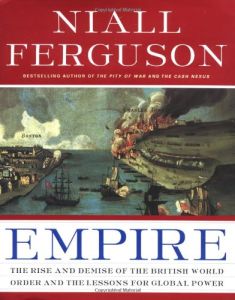Join getAbstract to access the summary!

Join getAbstract to access the summary!
Niall Ferguson
Empire
The Rise and Demise of the British World Order and the Lessons for Global Power
Basic Books, 2003
What's inside?
Over centuries of violence and slavery, and liberty and democracy, the British Empire rose – and fell – because of money.
Recommendation
First-rate historian and author Niall Ferguson offers a politically incorrect interpretation of the four-century history of the British Empire. Sure, he acknowledges that the imperialists stole, murdered and enslaved on their way to world domination. Yet, Ferguson argues, the Brits spread several traditions, including liberty, democracy and free trade, which improved the state of the world. To Ferguson’s credit, he makes no attempt to gloss over the Empire’s atrocities. In fact, with stellar prose, he takes the risk of undermining his central theme by describing the Empire’s bad behavior in great detail. His conclusions are as complex as history itself, which might prove frustrating to readers seeking simple answers. getAbstract.com strongly recommends this memoir to readers who love history, and particularly to those seeking a historical perspective on the pitfalls of imperialism.
Summary
About the Author
Niall Ferguson is Herzog Professor of Financial History at New York University’s Stern School of Business. He also is a senior research fellow at Jesus College, Oxford University, and a senior fellow of the Hoover Institution. His previous books include The House of Rothschild, The Pity of War, The Cash Nexus and Paper and Iron.























Comment on this summary